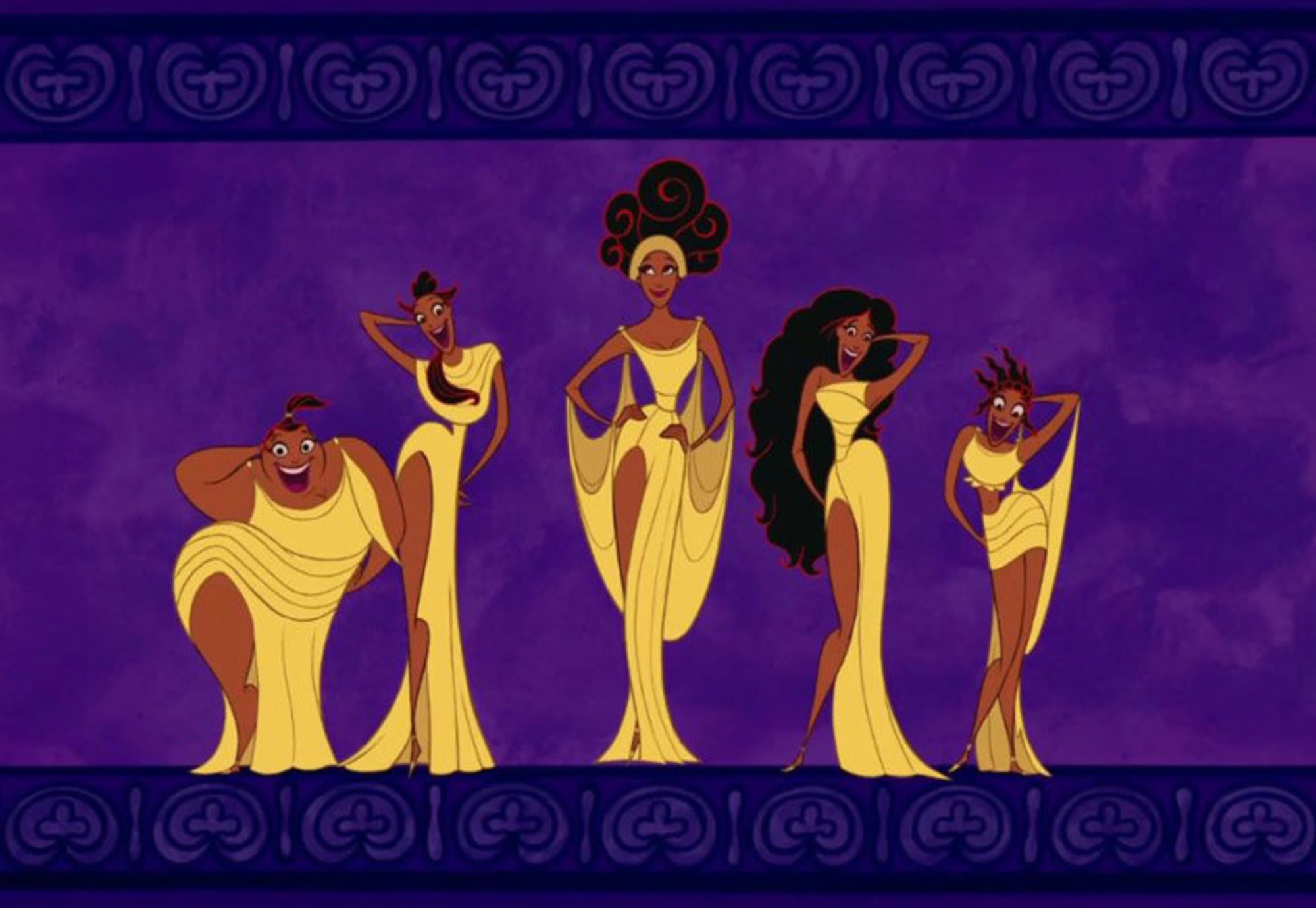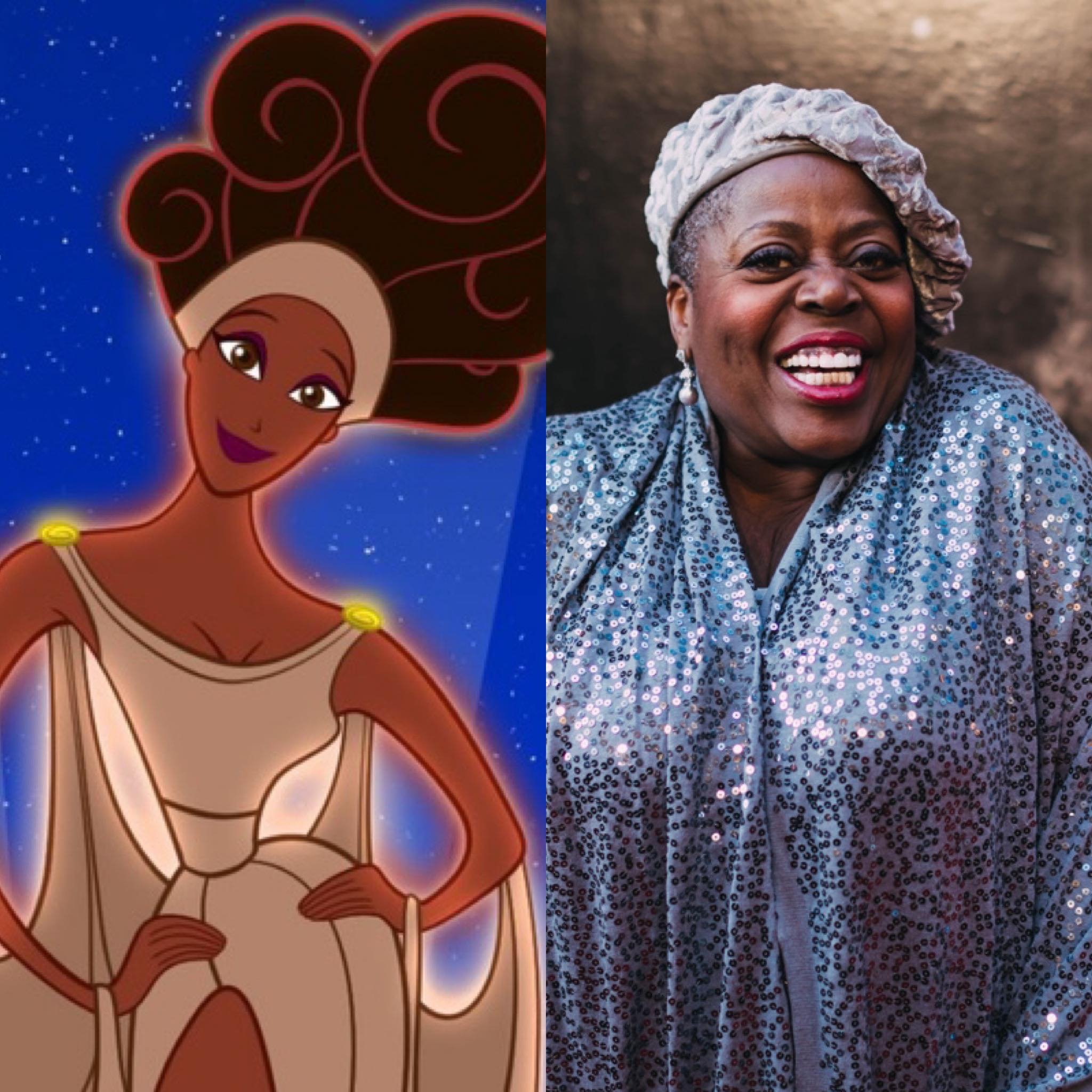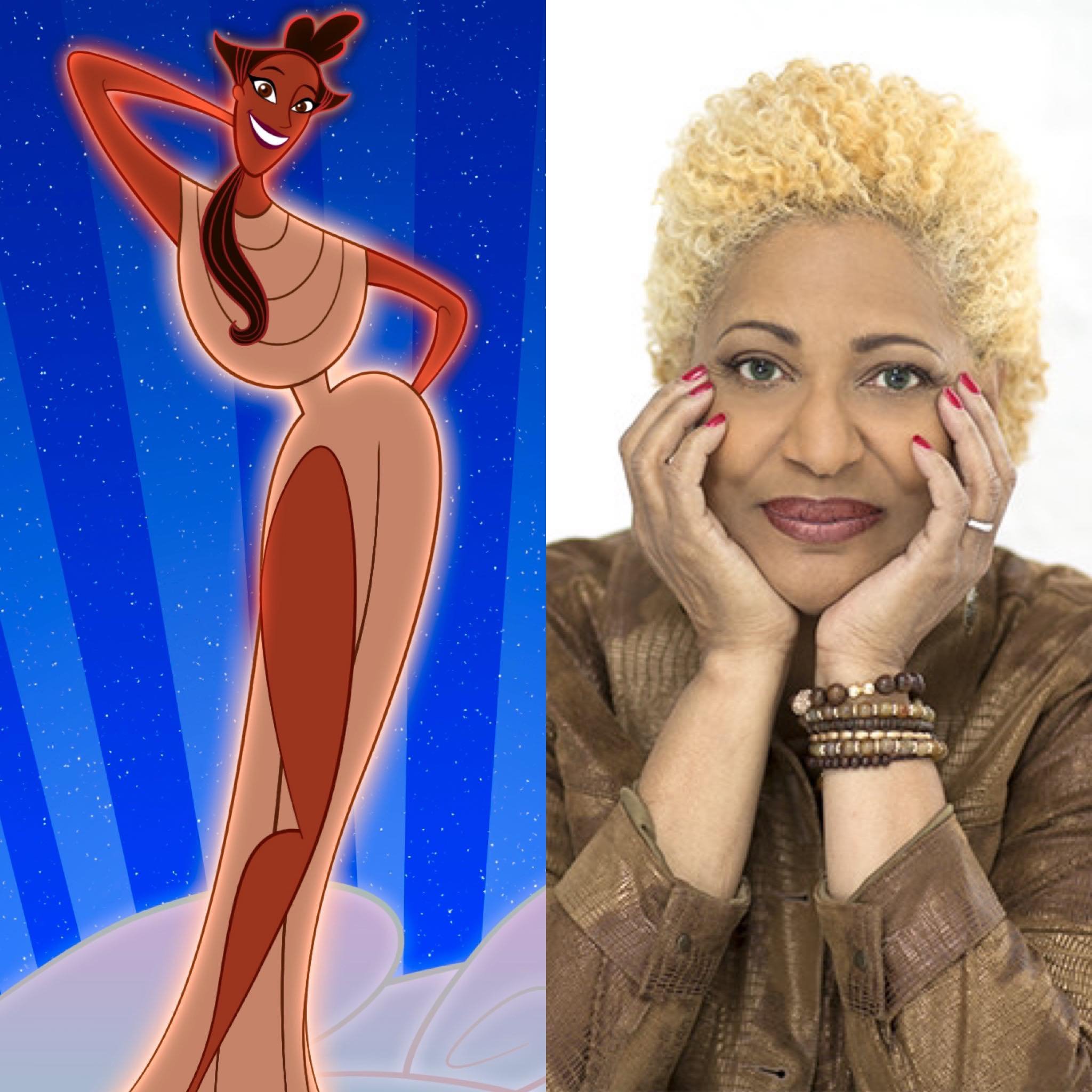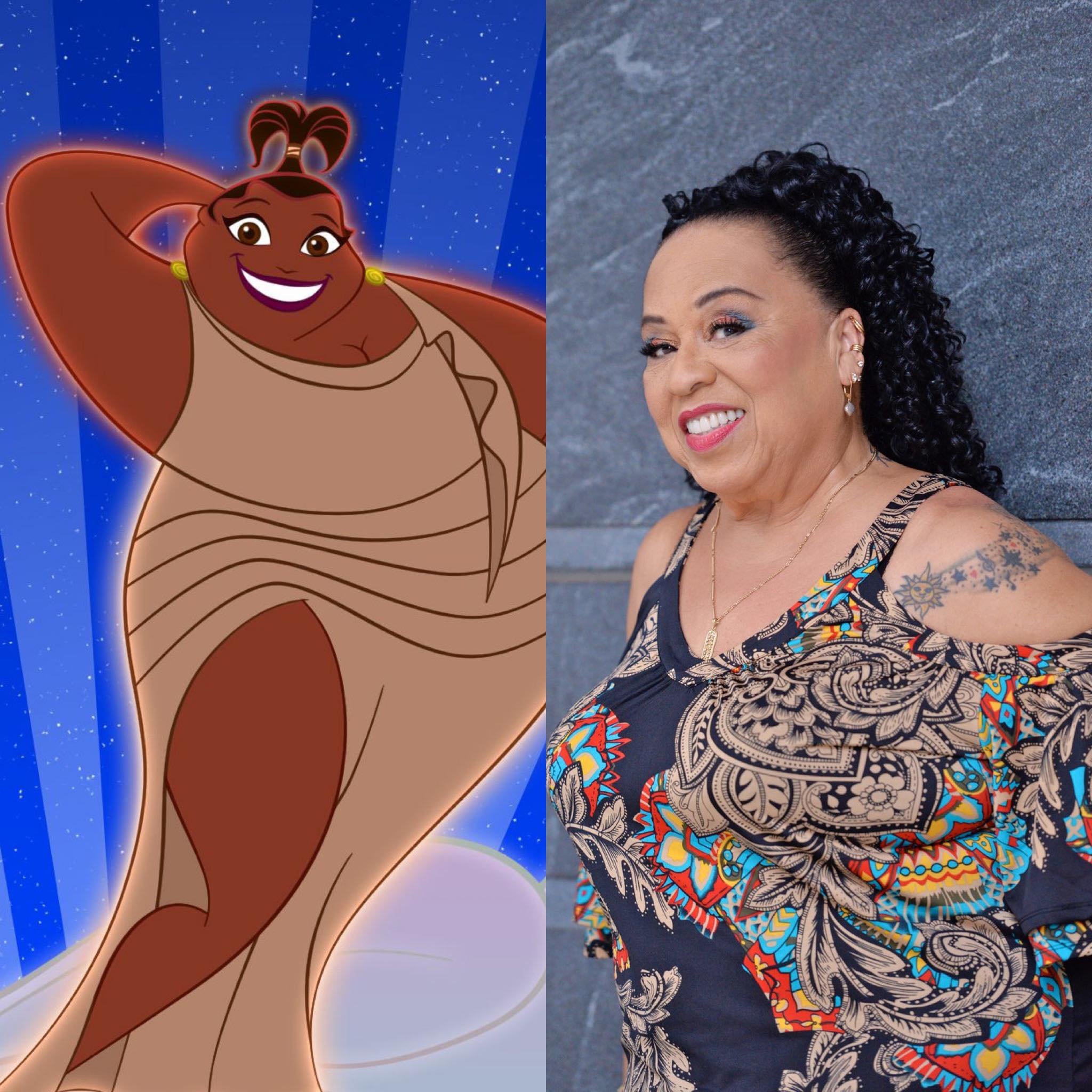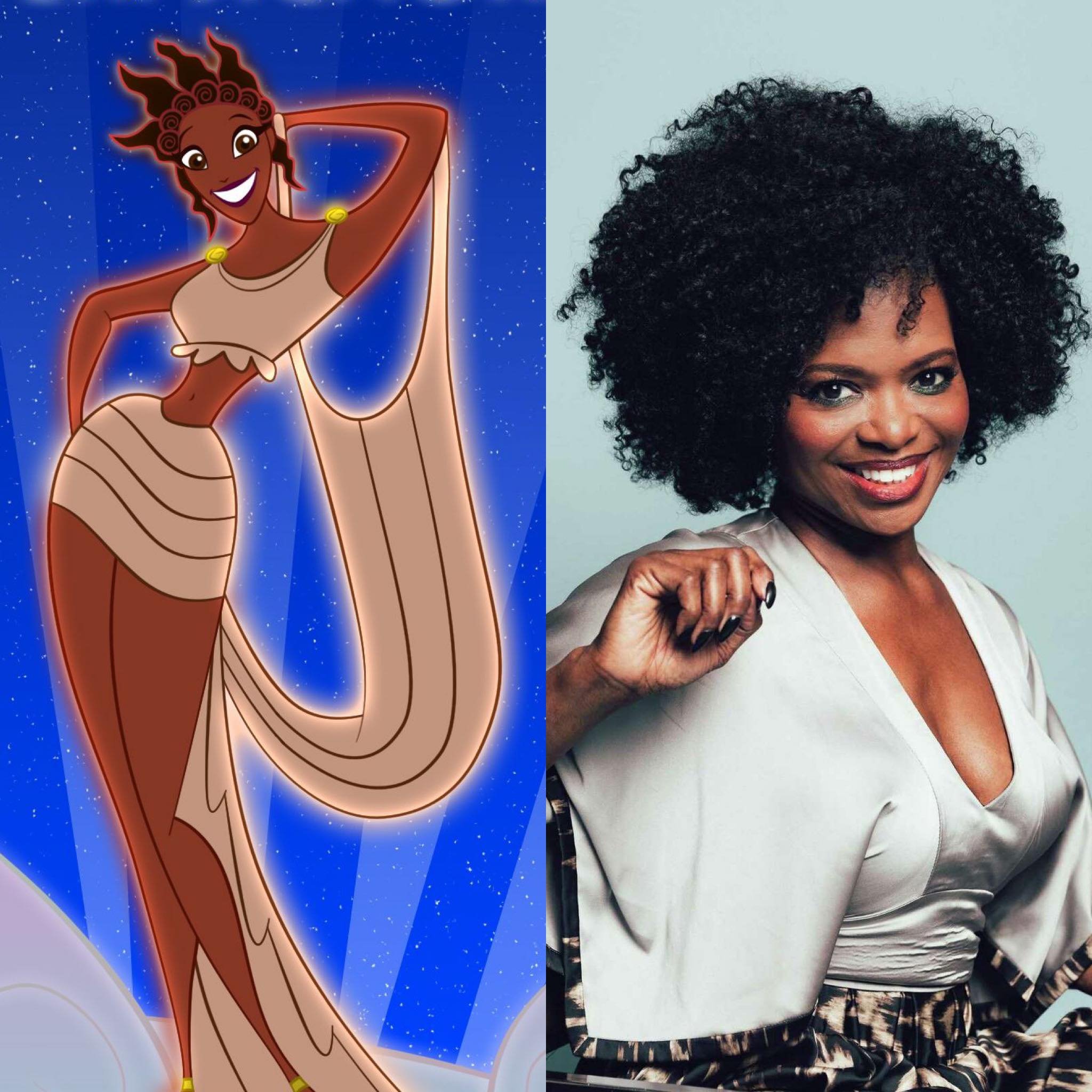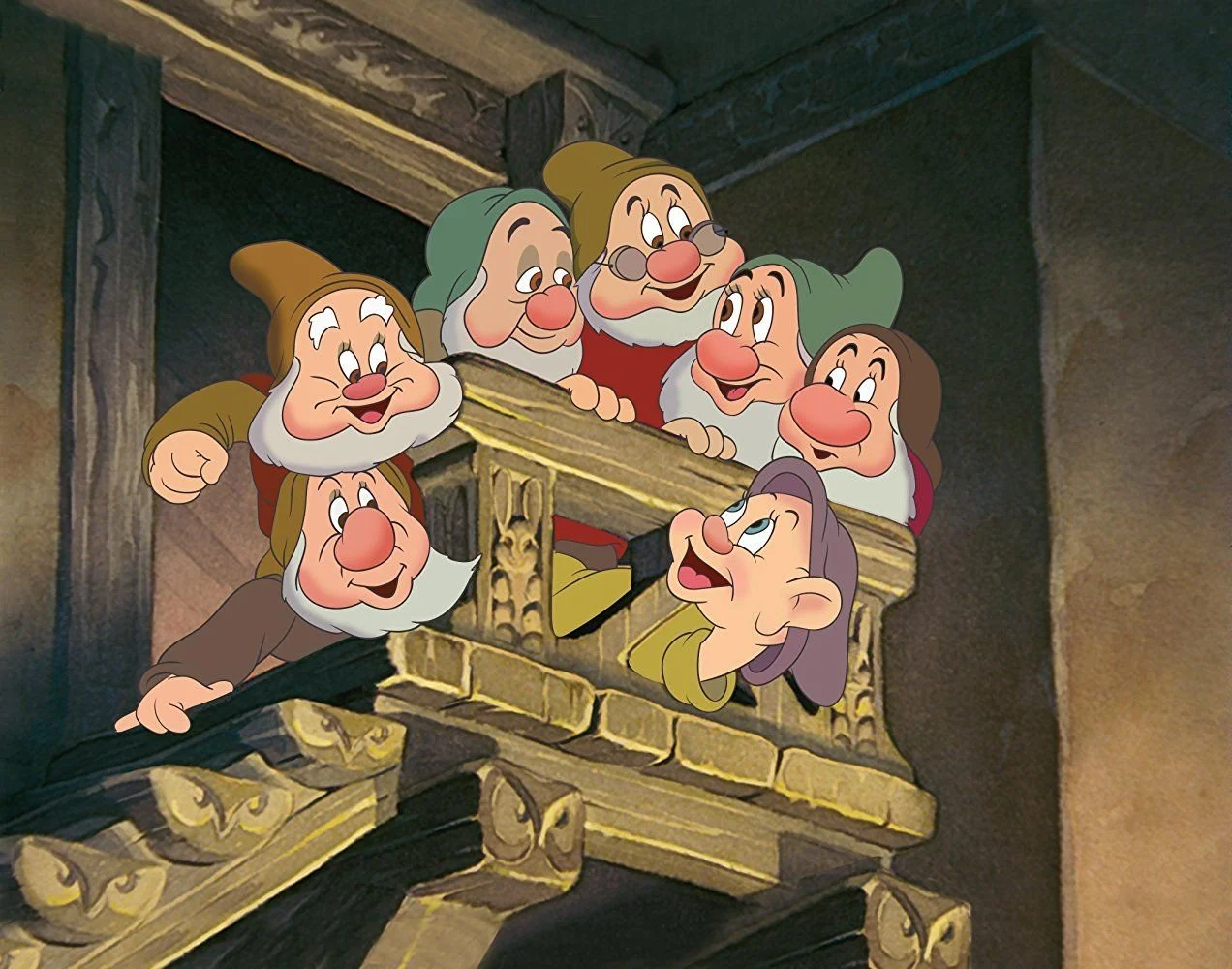The Voices Behind The Muses in Hercules
“We are the muses
Goddesses of the arts
And proclaimers of heroes”
Disney’s Hercules was one of the Disney Renaissance era films, and its worldwide success has carried the story through popular culture for over 2 decades, with the recent news of the live action version being produced in the near future. It’s music, characters, love story, family angle and villainous challenges make Hercules one of the most well loved Disney movies ever, with it receiving almost triple the revenue from the worldwide box office based on their budget. The Muses, the characters who serve as the narrators of the story and deliver soul-inspired music throughout the film, with songs like “The Gospel Truth”, “Zero to Hero”, and “A Star is Born”. Each Muse has their own unique look, voice, and power, so let’s dive into what each of those characteristics are.
The Muses in Hercules. Image from: https://vocal.media/geeks/musing-on-the-muses
The History of The Muses in Greek Mythology
In Greek mythology, the Muses were the daughters of Zeus and Titaness Mnemosyne. Titaness Mnemosyne was the Goddess of Memory, in which that trait was passed down to her daughters. The Muses represented song, dance, and memory, making them the perfect subjects to be the narrators of our story of love and triumph. In Theogony, a poem by Hesiod, an ancient Greek poet, he says that there were originally 9 Muses, all with unique names and powers. Often, authors and other creative minds would appeal to the Muses before beginning their work, to bring inspiration to them and enhance their imaginations. The Muses were dedicated to the arts, which were engrained into them at a young age when they were mentored by God Apollo.
The Muses in Greek Mythology. Image from: https://www.youtube.com/watch?v=BV6vDzkrAcc
disney’s depiction of the muses
According to Greek Myths - Greek Mythology, “the Muses are usually presented as ethereal women with divine beauty, holding laurels and other items depending on their faculty”. Each one was painted, sculpted and depicted in a way that represented each of their special ways they served their people. However, Disney decided to take a different approach to the Muses for their film. Though they still serve their purpose of providing song, dance, and storytelling to the film, their sound and look follow more of a Gospel and R&B style. This choice was made strategically by the writers and composer Alan Menken, as a way to introduce audiences to Greek mythology without having to explain the roles and history behind each Muse. It allows families to relate more to the story by seeing a girl group of all different appearances, come together to sing catchy upbeat tunes to keep the story moving along. The choice to have only 5 out of the 9 Muses has never been confirmed, but it can be assumed that with their vision to make it more of a girl group, the smaller number made more sense. The Muses insert their dominance right at the beginning of the film, by interrupting the standard male narration voice and letting him know that they would take it from there.
“Will you listen to him? He’s making the story sound like some Greek tragedy. Lighten up, dude. We’ll take it from here, darling.”
The Muses in Hercules. Image from: https://www.youtube.com/watch?v=rQzJkA00Af8
Calliope (Lillias White)
Calliope is the eldest of the nine Muses, and her most notable trait was that she had a beautiful singing voice. According to Greek Mythology, she taught Achilles how to sing. She is also known as the Muse of epic poetry and eloquence. In paintings and sculptures, she is often portrayed with a scroll in one hand, representing her way with poetry. In Disney’s version, Calliope is the Muse that stands in the middle, tall, slim, and with her hair up.
Calliope’s beautiful singing voice was done by Lillias White, who just like Calliope, is best known for her voice. Most of her professional life has been spent on the Broadway stage, performing in musicals such as Hadestown, Dreamgirls, Cats, Chicago, and her TONY award winning performance in The Life. Her voice has travelled from cabarets to various concert halls, as well as onto the TV and film screens. Aside from her work on Hercules, she was also a cast member on Sesame Street in 1992, Evette in Pieces of April, and in a supporting role in 2000’s How the Grinch Stole Christmas.
Calliope and Lillias White.
Clio (Vanéese Y. Thomas)
Clio was the Muse of History, with her serving as the one who embraces everyone at all corners of the world, and celebrating historical accomplishments. Her name comes from the Greek root κλέω/κλείω, which means to recount, to celebrate, and to make famous. She is also known to have been the one to create the guitar. Despite this, she is often depicted with a scroll, a book, or tablets.
In the Disney film, her voice was done by Vaneese Y. Thomas, who was destined to be a singer since she was young. Her father Rufus Thomas was one of the first blues artists to be signed by Sun Records, the same record label Elvis was discovered by. He was highly regarded in the 1960s and 70s as a singer, dancer and writer, so Vaneese was able to be exposed to the industry at a young age. Her brother and sister also joined the entertainment industry, but her mother was a social activist, and had other plans for Vaneese. Despite these dreams for her daughter, Vaneese headed to college just outside of Philadelphia, where she would start a gospel choir. Her solo debut was made in 1987 and became an instant R&B hit, and has put out 7 albums since then, one of them as recent as 2019. Before she provided her voice to Clio in Hercules, she also had a small role in TV’s Shining Time Station, and later did character vocals for the movie Anastasia.
Clio and Vaneese Y. Thomas.
Thalia (Roz Ryan)
Thaleia, or Thalia, was named the Muse of Comedy and Bucolic Poetry. She is most popularly depicted holding a comics mask, which was fitting for what she served. Thalia and Apollo produced the offspring Korybantes, who drummed and danced for Goddess Cybele.
Roz Ryan has had an illustrious career in entertainment. She can be most often found on the Broadway stage, and has performed in shows such as Dreamgirls, Ain’t Misbehavin’, A Christmas Carol, The Pajama Game, One Mo’ Time, and Scandalous. She is best known for her record-breaking time as Matron Mama Morton in Chicago the Musical for more than 3,000 shows. Roz has also had her fair share of time on TV, movies and other animated films. She played Madam President in Buzz Lightyear of Star Command, Dr. Gladys in Lilo & Stitch: The Series, Wade’s mom in Kim Possible, and Grandma Gayle in K.C Undercover.
Thalia and Roz Ryan.
Terpsichore (LaChanze)
Terpsichore’s name derives from the words terpsis, which means to delight, and khoros, which means to dance. She is the Goddess of choral song and dancing, which made her one of the perfect muses to choose for the film. Terpsichore is often depicted holding a lyre.
Much like Roz, LaChanze’s career has been heavily highlighted under the lights of the Broadway stage. Her time on Broadway she spanned across 31 seasons, with award winning roles such as Celie in The Color Purple, Ti Moune in One on this Island, and Wiletta in Trouble in Mind. She has also had parts in Dreamgirls, The Wiz, Ragtime, and Uptown… it’s Hot!. Her filmography includes roles in Sex and the City, Law & Order: SVU, The Blacklist, The Good Fight, and much more. LaChanze is an advocate for Black artists, as the Vice President of Black Theatre United.
Terpsichore and LaChanze.
Melpomene (Cheryl Freeman)
The final muse in our lineup, Melpomene, is the Muse of Tragedy. She is often shown holding a mask much like Thalia, only this mask has a more frightened look on it. Her other hand typically holds a knife or a sword. She is tied to a story in Greek mythology involving Hades, who kidnapped Persephone, the Goddess of Spring.
Cheryl Freeman was yet another Broadway legend that made up this group of empowering gospel singers. Cheryl originated several legendary Broadway roles, such as Gypsy in The Who’s Tommy, Sister Boxer in Amen Corner, Vy in Play On!, and Bessie Toler in The Civil War. Her powerful voice carried throughout theatres in New York, and she was the perfect choice for this elegant and empowering role.
Melpomene and Cheryl Freeman.
Reference list:
https://www.behindthevoiceactors.com/movies/Hercules/
https://disney.fandom.com/wiki/Muses
https://www.greekmythology.com/Other_Gods/The_Muses/the_muses.html
https://www.greekmyths-greekmythology.com/nine-muses-in-greek-mythology/
https://www.youtube.com/watch?v=pj51-H6YUCw
https://www.lilliaswhite.com/about
https://collider.com/disney-hercules-muses-bridge-between-ancient-story-modern-audience/
https://www.theoi.com/Ouranios/MousaKalliope.html
https://en.wikipedia.org/wiki/Clio
https://www.discogs.com/artist/278710-Vaneese-Thomas
https://www.imdb.com/name/nm0859619/
http://vaneesethomas.com/about/
https://www.imdb.com/name/nm0752826/
https://www.theoi.com/Ouranios/MousaThaleia.html
https://en.wikipedia.org/wiki/Thalia_(Muse)
https://www.mslachanze.com/about-lachanze/
https://www.theoi.com/Ouranios/MousaTerpsikhore.html
https://en.wikipedia.org/wiki/Terpsichore
https://www.theoi.com/Ouranios/MousaMelpomene.html
